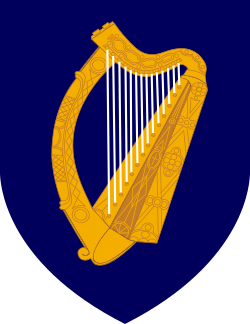Facts of the case
The claimants case fell to be adjudicated by the statutory Tribunal which was created by the Hepatitis C Compensation Tribunal Act 1997. This Act was enacted to deal with the deficiencies of a previous non-statutory scheme. Both schemes were set up in order to compensate those who had contracted Hepatitis C through the use of certain blood products. [2] The original non-statutory scheme did not contain provision for appeal or allow for aggravated damages and therefore any claim pending was to be heard by the newly formed statutory Tribunal created by the 1997 Act in accordance with its provisions. [2] An award was made in favour of the DB (the respondent in the appeal) on 4 November 1997, which he accepted on 24 November 1997.
Section 5(9)(a) 1997 Act provides that "where the Tribunal makes an award to a claimant, the claimant shall have a period of one month ... from the date of receiving notice of the making of the award during which the claimant may decide in writing either to accept or reject the award or to appeal the award." [4] Section 5(15) provided that a claimant could appeal "any decision" made by the Tribunal to the High Court. [4] However, by accepting the award, the claimant waived any rights he might have had arising out of his claim. [4]
On 22 April 1999, DB appealed against his award. In response, the Minister for Health made a preliminary application arguing two points. Firstly, the High Court would have no jurisdiction to hear the case as the claimant had accepted his award in writing and secondly, even where High Court jurisdiction could be established, the appeal had been brought outside of the one month time limit within Section 5(9)(a) 1997 Act. [2]
History in lower courts
O'Neill J of the High Court held that the provisions contained within Section 5(9) 1997 Act regarding acceptance of an award did not exclude bringing an appeal to the High Court. [2] In addition, it was held that although the time limit of one month had expired, the High Court could use its discretion under Order 122(7) of the Rules of the Superior Courts to extend such limit at it saw fit. O'Neill J also held in his judgement that the Tribunal did not have locus standi to appear before the court. [2]
Both the Tribunal and the Minister for Health appealed to the Supreme Court.
The Supreme Court identified conditions under which appeals could be made to it in relation to section 5(9) of the 1997 act:
(i) Is a claimant appealing the award by the Tribunal "barred from doing so after the time in section 5(9)(a) of the Act of 1997 has passed?" [2]
(ii) If not, "is a claimant who has accepted an award of the Tribunal barred from also appealing the award?" [2]
(iii) "Does the Tribunal have a locus standi to appear in an application to the High Court or on an appeal?" [2]
